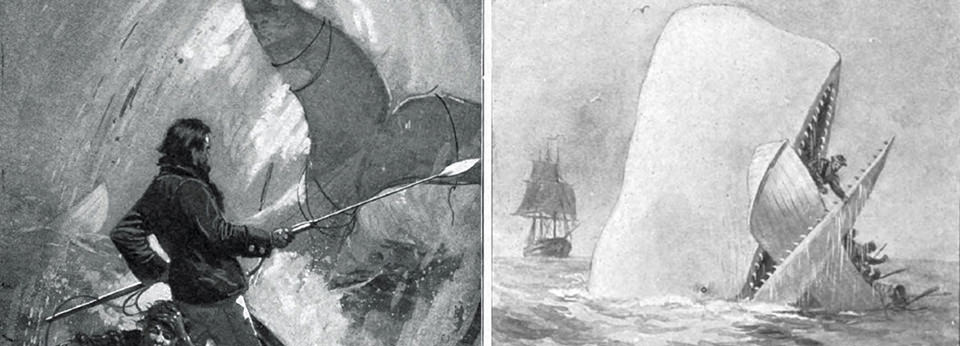Was Moby Dick a real whale?
Although Moby Dick was not a real whale, real-life events inspired the classic novel.

Illustrations from "Moby-Dick", published in 1851 and authored by Herman Melville.
Did you know?
In 2011, maritime heritage archaeologists working with NOAA’s Office of National Marine Sanctuaries found the wreckage of Two Brothers located nearly six hundred miles northwest of Honolulu.
"Moby-Dick; or, The Whale", the allegorical novel about Captain Ahab’s search to kill a great white whale, was based on real-life events. Born in 1819, author Herman Melville grew up during the peak of American dominance of the whaling industry, roughly the period between 1820 and the start of the Civil War. Weaving contemporary accounts and his own experiences as a whaler, Melville created his American masterpiece.
The young Melville was famously inspired by the story of George Pollard, the former captain of the whaler Essex. While on a two-year whaling expedition crisscrossing the Pacific, the Essex was rammed by a sperm whale. Quickly abandoning ship and thousands of miles from land, Pollard and his crew escaped in leaky lifeboats to begin a horrific ordeal resulting in sickness, starvation, and cannibalism. One of the few to survive, Pollard was given a second chance at captaining another whaler, the Two Brothers. But after 18 months in the Pacific, Pollard ran the Two Brothers aground, sinking the ship in what is now the Papahānaumokuākea Marine National Monument.
The name of the whale was also inspired by real-life events. In 1839, Melville read a story in a magazine about an albino sperm whale famed for its deadly attacks on whaling ships trying to hunt it down. This whale, killed off the coast of Chile near Mocha Island, was called Mocha Dick.
Social